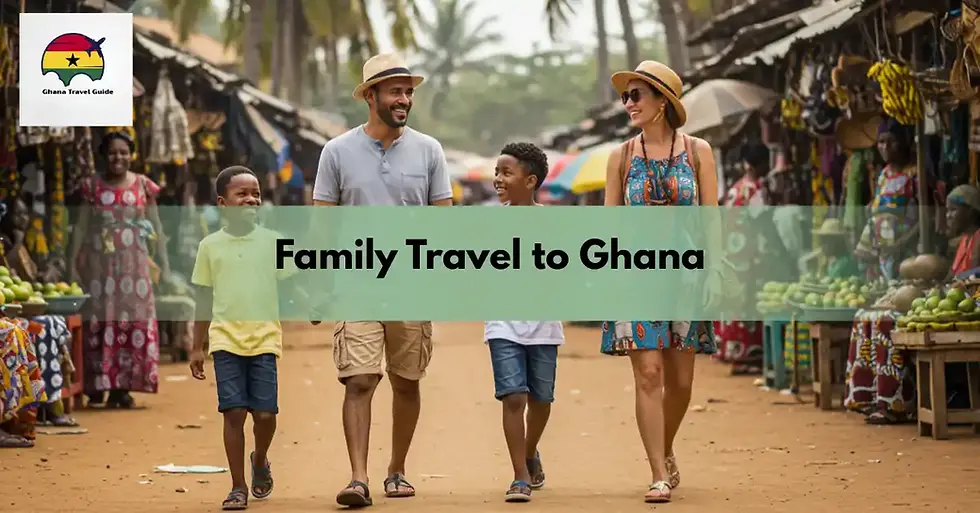What You Need to Know About Ghana’s Currency and Money Exchange
- Ethan Brooks

- May 21
- 3 min read
Updated: May 22
When I first traveled to Ghana, understanding the local money system was one of the most important things I had to figure out. Ghana uses the Ghanaian Cedi (GHS) as its currency. Knowing about the currency and how to exchange money made my trip much easier. If you’re planning a visit, here’s what you need to know about Ghana’s money and currency exchange.
Ghana’s Currency: The Ghanaian Cedi
The official currency in Ghana is the Ghanaian Cedi, often shortened to GHS. The Cedi comes in both coins and banknotes. Coins are used for small amounts like 1, 5, 10, 20, and 50 pesewas (a pesewa is like a cent). Banknotes come in larger amounts such as 1, 2, 5, 10, 20, 50, and 100 cedis.
When I was in Ghana, I used both coins and notes daily. Small shops and street vendors mostly want cash, so it’s good to carry some coins and smaller notes.

Where to Exchange Money in Ghana
You can exchange your foreign money—like US dollars, Euros, or British pounds—into Ghanaian Cedis in several places:
Banks: These are safe and reliable. I usually preferred going to banks because they gave me a fair rate and no risk of scams.
Official Currency Exchange Bureaus: These are common in cities and airports. They also offer good rates and are trustworthy.
Hotels: Some hotels offer currency exchange, but the rates might not be the best.
Avoid Street Money Changers: I learned this the hard way. Some street dealers might offer better rates, but there’s a risk of getting fake money or being scammed.
Always ask for a receipt when you exchange money anywhere. This can help if there’s a problem later.
Understanding Exchange Rates
The exchange rate is how much Ghanaian Cedi you get for your foreign currency. Rates change often, sometimes daily. When I traveled, I checked the current exchange rate online before exchanging money. This helped me avoid losing money by accepting a bad rate.
For example, if the rate is 1 USD = 12 GHS, that means for every dollar you exchange, you get 12 cedis.
Using Money in Ghana
Cash is king in Ghana. Many places, especially in smaller towns or markets, don’t take credit or debit cards. Even in bigger cities like Accra or Kumasi, cash is often preferred. So, carrying enough Ghanaian Cedis is important.
That said, some hotels, restaurants, and bigger stores do accept cards. But don’t rely on it too much.
Tips to Save Money on Currency Exchange
Compare rates at a few places before exchanging.
Exchange only what you need for your trip; avoid exchanging too much at once.
Use banks or official exchange offices, not street dealers.
Check online for the current exchange rate daily.
Final Thoughts
Understanding Ghana’s currency and how to exchange money made my trip much smoother. The Ghanaian Cedi is easy to use once you get the hang of it. Just remember to use safe places to exchange money, carry enough cash, and check the exchange rates before you exchange.
If you plan your money right, your visit to Ghana will be more enjoyable and less stressful!
FAQs
Q: Can I use US dollars or Euros directly in Ghana?
A: No, it’s best to exchange your foreign money into Ghanaian Cedis. Some places may accept dollars, but it’s not common.
Q: How can I find the best exchange rate? A: Check online for current rates before you exchange, and compare rates at banks or exchange bureaus.
Q: Is it safe to carry cash in Ghana? A: Ghana is generally safe, but it’s smart to keep your money secure and not carry large amounts openly.
.png)



Comments